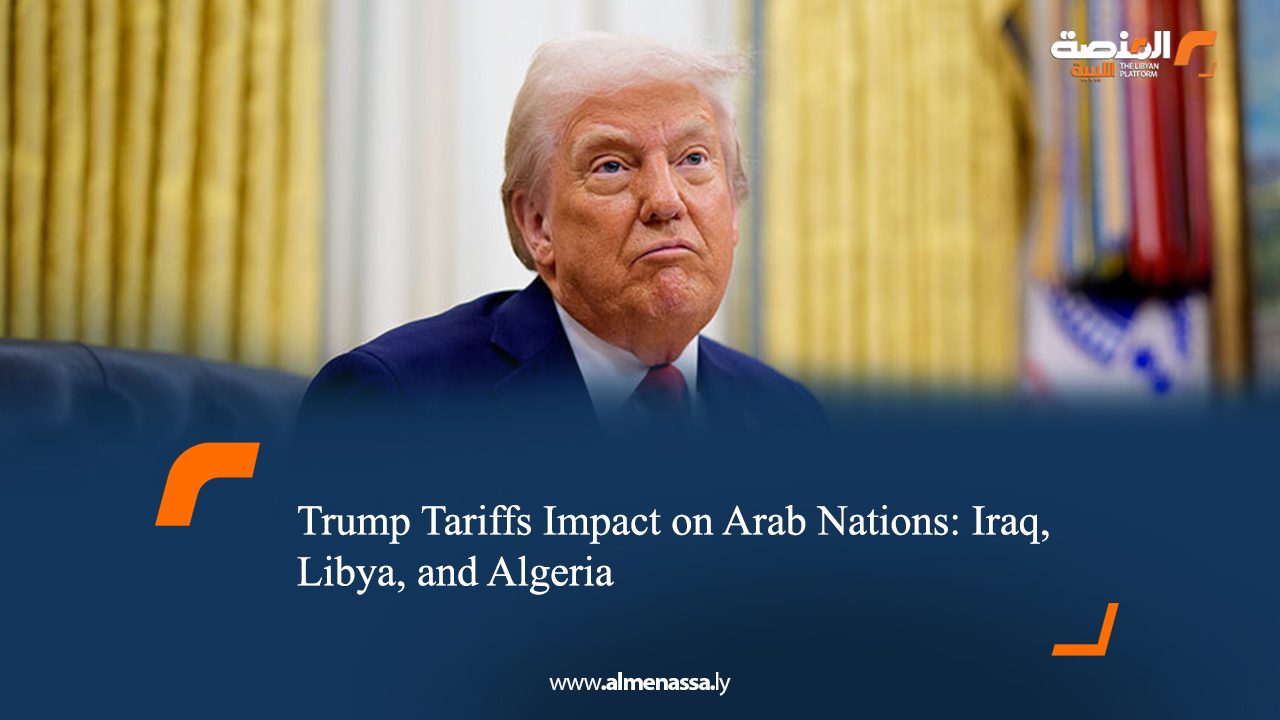US President Donald Trump has imposed new tariffs on a wide range of global goods, with several Arab nations among those targeted. Some of the highest tariffs globally were levied against Iraq, Algeria, and Libya, with the US imposing a 35% tariff on Iraq and a 30% tariff on both Algeria and Libya.
Iraq: Limited Impact Due to Oil Exemption
According to Dr. Abdul Rahman al-Mashhadani, a professor of international finance at the Iraqi University, these new tariffs are unlikely to significantly impact Iraq’s economy. Speaking to CNN Arabic, he explained that “oil, which constitutes over 95% of Iraq’s exports to the US, is exempt from these tariffs, so there will be no major repercussions.”
Al-Mashhadani noted that Iraq’s exports to the US in 2024 totalled $7.4 billion, with approximately $7 billion of that being oil. The remaining $400 million, comprised of non-oil products, will be subject to the new duties. He believes the effect on these non-oil goods will be limited, as they are primarily purchased by the roughly two million-strong Iraqi diaspora in the US. He suggested these consumers buy the products out of “nostalgia for their homeland,” meaning demand is unlikely to fall significantly.
He also praised the Iraqi government’s efforts to diversify its oil markets, with Baghdad actively seeking to expand exports to Southeast Asia and Europe, a strategy that began before the tariffs were announced. In 2024, the trade volume between Iraq and the US was around $9 billion, with a trade surplus of $5.7 billion in Iraq’s favour.
Al-Mashhadani pointed out that other Arab countries, such as Tunisia, might be more affected, particularly in the olive sector, where the US has imposed a 25% tariff on Tunisian exports.
Libya: Limited Fallout with Opportunity for New Markets
For Libya, Dr. Suleiman al-Shuhoumi, a finance professor and founder of the Libyan Stock Exchange, clarified that trade with the US is also primarily focused on the oil sector. As such, he believes the impact of the new tariffs will be limited.
Al-Shuhoumi stated that annual trade between the two countries isn’t high, standing at around $2 billion, with a trade surplus of about $900 million for Libya. He argued that Libya could easily diversify its oil markets to target Europe, Southeast Asia, and China. He also suggested that the interest of major American companies in investing in Libya could open a door for negotiating the tariffs, as part of a broader push to strengthen economic ties.
The professor noted that US-Libyan trade relations have historically been volatile, heavily impacted by economic sanctions in the 1980s and 1990s. Following the lifting of sanctions, trade was largely centred on Libyan oil exports and American car imports. Al-Shuhoumi emphasised that Libya’s economic recovery and effective trade relations are contingent on achieving stability and ending its political divisions.
Algeria: Oil Exports Protect the Economy
From Algeria’s perspective, economic expert Abdelkader Slimani explained that the country would not be significantly affected by the US tariffs. This is largely because Algeria’s exports to the US are overwhelmingly primary materials, with oil at the forefront.
Slimani noted that “90% of Algeria’s exports to the US are petroleum products, which are exempt from the tariffs, so the impact will be limited.” The remaining exports include petrochemical derivatives, cement, iron, rubber, and some agricultural products.
He estimated that bilateral trade between the two nations was between $3.5 and $4 billion in 2024, with a trade surplus of about $1.4 billion for Algeria. Slimani said sectors that may be affected include cement, iron, and other construction materials, and he called for finding new markets for these products, particularly in Eastern and Central Europe. He also highlighted President Abdelmadjid Tebboune’s visit to Italy as part of a strategic plan to increase oil and gas exports to Europe via countries like Slovenia, Hungary, and potentially Germany.


